We’ve had some fun over the past couple of years putting together our seasonal “Songs” lists (most recently, our Songs of Spring compilation), so we thought we’d give it a try with another of our favorite mediums. Sure, the weather is getting nice and we don’t want to stay inside all day, but we still need something to watch on those warm nights, lazy Sunday mornings, and when our allergies are just so terrible that there’s no chance of purposefully coming in contact with the outside air. You’ll notice some common threads that ring true here for one of our favored seasons: youth, innocence, rebirth, and love. So here it is, our list of must watch springtime films. We’d love to hear what’s on your list.
Warning: Spoilers are abound in the following clips
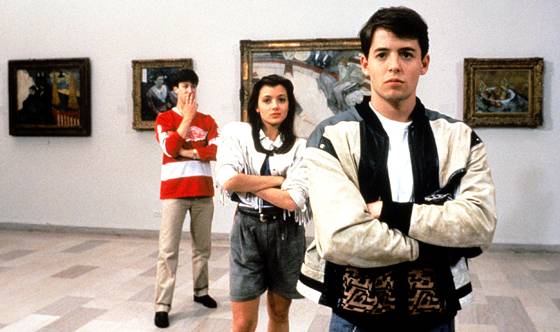 Ferris Bueller’s Day Off (1986)
Ferris Bueller’s Day Off (1986)
I tend to nearly hibernate in the winter. I eat more, I feel perpetually tired, and I don’t care to go many places. Getting out of bed for work each morning is a battle. When the weather changes, I feel reborn and my everyday dread of work shifts from “I can’t get out of bed” to “I don’t want to stay cooped up inside all day.” Every day is full of endless possibilities and I feel nostalgic for what I’ve done and daydream about all of the things that I could be doing. I long for a “sick” day where I can just relax and do nothing or, somehow, miraculously do all of the things I want to do all in one day. That’s why Ferris Bueller’s Day Off is my ideal spring film. Ferris is a master at playing hooky and he fits more fun into one day than I end up getting the whole season. This movie brings me back to those carefree days when responsibility was far from my mind and I could just wander and be myself. Not to mention, I love the Art Institute and Wrigley Field. “The question isn’t ‘what are we going to do,’ the question is ‘what aren’t we going to do?’” (JS)
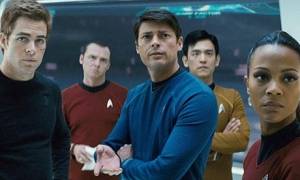 As I stated in SP’s recent Songs of Spring article, spring conjures up certain ideas for me. The first of these ideas related to spring is rebirth. As flowers rise from the dirt anew, so do new versions of old films. Oft times, these remakes, these reinterpretations, are little more than generic studio films with zero charm and barely a passing resemblance to the original film from which they’ve stolen a title. This is not the case, however, with J.J. Abrams’ exciting reboot of the Star Trek franchise. Yes, I know, the lens flares. But those show-off auteur moments are sufferable when you consider the love and admiration for the original series that clearly went into this update. From Chris Pine’s cocky Kirk to Zachary Quinto’s dead-on Spock, from the exciting action sequences to the clever nods to the old-school Trek, this reboot showed both a fanboy reverence and a determination to “boldly go” forward. (MG)
As I stated in SP’s recent Songs of Spring article, spring conjures up certain ideas for me. The first of these ideas related to spring is rebirth. As flowers rise from the dirt anew, so do new versions of old films. Oft times, these remakes, these reinterpretations, are little more than generic studio films with zero charm and barely a passing resemblance to the original film from which they’ve stolen a title. This is not the case, however, with J.J. Abrams’ exciting reboot of the Star Trek franchise. Yes, I know, the lens flares. But those show-off auteur moments are sufferable when you consider the love and admiration for the original series that clearly went into this update. From Chris Pine’s cocky Kirk to Zachary Quinto’s dead-on Spock, from the exciting action sequences to the clever nods to the old-school Trek, this reboot showed both a fanboy reverence and a determination to “boldly go” forward. (MG)
Bottle Rocket (1996)
I appreciate all types of films, 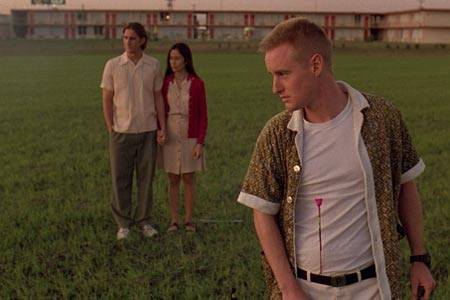 and I generally tend to gravitate toward dark, challenging, and sometimes, melancholy indie films. But Wes Anderson is my favorite filmmaker overall, because essentially I want quirky, sincere characters and some good laughs. I’ve always felt like he makes films of the stories that J.D. Salinger never wrote. Bottle Rocket is an ideal springtime film for me because of its reckless innocence and tomfoolery. It came out when I was a teenager, but I didn’t see it until I was in college. And that’s where it transports me — where I wasn’t exactly reckless, but did partake in more risky activities than my now scripted days — days that were warm and the seriousness was low. (JS)
and I generally tend to gravitate toward dark, challenging, and sometimes, melancholy indie films. But Wes Anderson is my favorite filmmaker overall, because essentially I want quirky, sincere characters and some good laughs. I’ve always felt like he makes films of the stories that J.D. Salinger never wrote. Bottle Rocket is an ideal springtime film for me because of its reckless innocence and tomfoolery. It came out when I was a teenager, but I didn’t see it until I was in college. And that’s where it transports me — where I wasn’t exactly reckless, but did partake in more risky activities than my now scripted days — days that were warm and the seriousness was low. (JS)
The Goodbye Girl (1977)
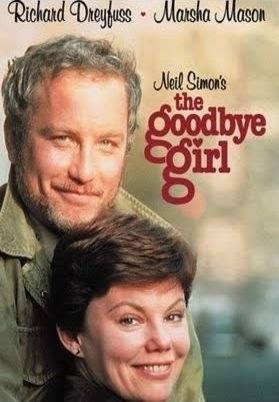 The second fundamental truth about springtime is that, yes, dammit, love is all around. And as much as I am truly not a fan of the genre known as the rom-com (a name I actually like because it makes them sound like every bit the mechanical, factory-processed assembly of parts that they are), I have to admit that there is a romantic comedy I love, because it is both romantic and an honest to God comedy. That film, movie fans, is Neil Simon’s grown-up tale of love amongst struggling artists known as The Goodbye Girl. In this film, Marsha Mason plays Paula, a former Broadway dancer with a young daughter (a great kid actor named Quinn Cummings) who finds out in the course of 48 hours that her actor boyfriend has both left her (for a film project overseas) and sublet their New York apartment to an acquaintance. This acquaintance, Chicago-bred actor Elliott Garfield (played by Richard Dreyfuss, who won an Oscar for the role), arrives to begin work on a truly awful adaptation of Richard III, completely unaware of Paula’s presence in the apartment. They quickly (and believably) agree to share the apartment, and a relationship between the two hard-luck performers begins to blossom. There are peaks and valleys, epic fights and hilarious exchanges, and these two actors make you believe that even as their characters are struggling to find their place in the world, they are falling in love. (MG)
The second fundamental truth about springtime is that, yes, dammit, love is all around. And as much as I am truly not a fan of the genre known as the rom-com (a name I actually like because it makes them sound like every bit the mechanical, factory-processed assembly of parts that they are), I have to admit that there is a romantic comedy I love, because it is both romantic and an honest to God comedy. That film, movie fans, is Neil Simon’s grown-up tale of love amongst struggling artists known as The Goodbye Girl. In this film, Marsha Mason plays Paula, a former Broadway dancer with a young daughter (a great kid actor named Quinn Cummings) who finds out in the course of 48 hours that her actor boyfriend has both left her (for a film project overseas) and sublet their New York apartment to an acquaintance. This acquaintance, Chicago-bred actor Elliott Garfield (played by Richard Dreyfuss, who won an Oscar for the role), arrives to begin work on a truly awful adaptation of Richard III, completely unaware of Paula’s presence in the apartment. They quickly (and believably) agree to share the apartment, and a relationship between the two hard-luck performers begins to blossom. There are peaks and valleys, epic fights and hilarious exchanges, and these two actors make you believe that even as their characters are struggling to find their place in the world, they are falling in love. (MG)
City Lights (1931)
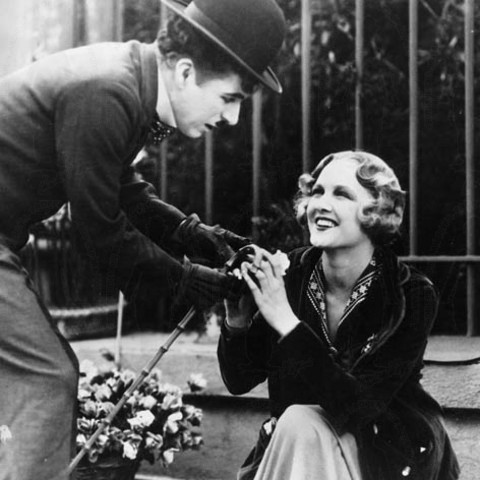 I, too, agree that spring is the season when love is in the air. For me, the perfect love story is City Lights. Charlie Chaplin stars as The Tramp, who falls in love with a blind flower girl and does all he can to help her, despite his own circumstances. It’s an underdog story with a lot of heart that teaches compassion, persistence, and kindness. There’s probably a lot I could say here about one of my all-time favorite films and my love of Chaplin’s work, but sometimes, you know, you really just don’t need words. (JS)
I, too, agree that spring is the season when love is in the air. For me, the perfect love story is City Lights. Charlie Chaplin stars as The Tramp, who falls in love with a blind flower girl and does all he can to help her, despite his own circumstances. It’s an underdog story with a lot of heart that teaches compassion, persistence, and kindness. There’s probably a lot I could say here about one of my all-time favorite films and my love of Chaplin’s work, but sometimes, you know, you really just don’t need words. (JS)
Grosse Pointe Blank (1997)
The third calling card of spring is that inevitable lunge toward graduation. This is the time when proms are attended, finals are taken, and goodbyes are said to schools, classmates, and hometowns. I could go from that description to any 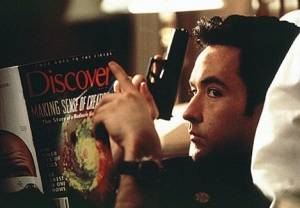 number of John Hughes films, and maybe I should, but I have something a little twistier in mind. The John Cusack vehicle Grosse Pointe Blank is a slick, clever, surprisingly affecting examination of one man’s return to the town he left behind (on prom night, no less) to travel the world and indulge his tendencies toward darkness. In his case, this led to a career as a professional assassin for hire and a nagging wonder about the place and girl he left behind. Upon returning home for his high school reunion, all sorts of violent hilarity ensues, but not without a considerable amount of smart, well-written introspection, including exchanges with a conflicted therapist (played by Alan Arkin) and an old acquaintance (played by Jeremy Piven). As much as I love the one-liners (“These are my words…”), the oddball mix of stylized violence and grown-up romance, the thing that will always stand out to me is that, throughout the entire movie, in his role as a government agent following Cusack’s character, Hank Azaria is doing one long, brilliant impression of George Clooney. Go ahead: Watch it, and tell me I’m wrong. (MG)
number of John Hughes films, and maybe I should, but I have something a little twistier in mind. The John Cusack vehicle Grosse Pointe Blank is a slick, clever, surprisingly affecting examination of one man’s return to the town he left behind (on prom night, no less) to travel the world and indulge his tendencies toward darkness. In his case, this led to a career as a professional assassin for hire and a nagging wonder about the place and girl he left behind. Upon returning home for his high school reunion, all sorts of violent hilarity ensues, but not without a considerable amount of smart, well-written introspection, including exchanges with a conflicted therapist (played by Alan Arkin) and an old acquaintance (played by Jeremy Piven). As much as I love the one-liners (“These are my words…”), the oddball mix of stylized violence and grown-up romance, the thing that will always stand out to me is that, throughout the entire movie, in his role as a government agent following Cusack’s character, Hank Azaria is doing one long, brilliant impression of George Clooney. Go ahead: Watch it, and tell me I’m wrong. (MG)
This list compiled by Mathew Green, Tracy Nectoux, and Jeremiah Stanley.








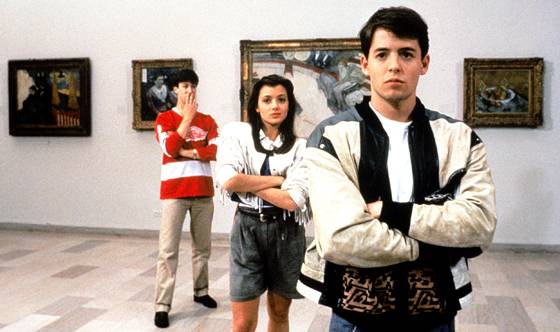
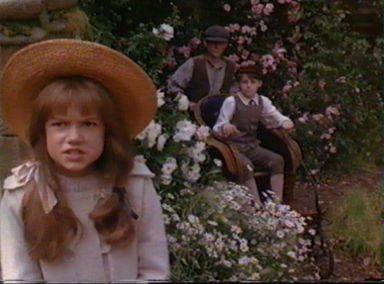 There have been many film adaptations of Frances Hodgon Burnett’s beautiful 1911 children’s classic, but my favorite is the 1993 British film, directed by Agnieszka Holland.
There have been many film adaptations of Frances Hodgon Burnett’s beautiful 1911 children’s classic, but my favorite is the 1993 British film, directed by Agnieszka Holland.